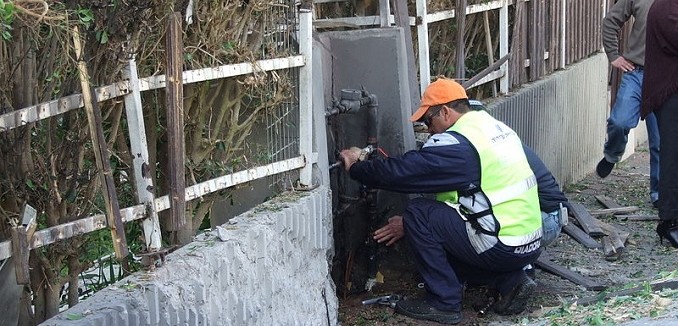The rockets fired this morning on Sderot from Gaza should not come as a shock to either Israelis or Palestinians. It’s the quiet that has prevailed in southern Israel since November’s Operation Pillar of Defense that is far more surprising.
President Barack Obama’s visit brings with it ample opportunities for provocations by Palestinian groups – whether it’s this morning’s rocket salvo or the attempt by “grassroots activists” to erect outposts in the E-1 area east of Jerusalem.
Three days ago I visited Sderot. The city seemed to be growing accustomed to living conditions not previously known: quiet and routine. A city like any other. Yet given the volatile conditions in nearby Gaza, and despite Hamas’ explicit vow that it would stop firing, the renewal of rocket launches was only a matter of time.
It’s possible that this morning’s salvo was part of a struggle being waged in recent weeks between Hamas and the Egyptian army. That army is seeking to hurt Hamas’s position in Gaza. It is closing smuggling tunnels leading from Sinai to the Gaza Strip and launching broadsides against Hamas nearly every day in the Egyptian press.
The latest revelation to shock the Cairo streets was that Egyptian security forces had thwarted a smuggling attempt into Gaza of fabric for production of Egyptian army and police uniforms. The uniforms would have gone to Gaza terror groups dressing up as the Egyptian military to help out carry out an attack.
Hamas is so unhappy about the tunnels’ closure that it is willing to overlook this morning’s rockets on Sderot. But the attack was also an attempt by Gaza-based terror groups to deliver a message to Obama that he cannot ignore the problems simmering in the Strip.
For Obama – and for Palestinian Authority President Mahmoud Abbas, with whom he had a meeting Thursday in Ramallah – it’s helpful to ignore what’s happening in Gaza. Everyone is talking about the two-state solution, while in the coastal territory a Palestinian Islamist state has arisen, locked in a perpetual cycle of wars and ceasefires with Israel. Solving the problem of Gaza seems far more complicated than whatever is occurring between Israel and the PA.
Diplomatically there is not much movement. The New York Times published an email that purports to reveal Abbas has recently grown more flexible in his prior demand for a West Bank settlement freeze. The email claims to show that Abbas would agree to Israel implementing a “secret,” unannounced freeze, and is asking only that Jerusalem agree that in principle, the June 4, 1967 lines be the basis for negotiation. The email contains nothing new, and merely reiterates what Abbas’ position has been for years.
In any case, the next two days are likely to bring additional unsurprising and unpleasant surprises.
[Photo: Natan Flayer / Wiki Commons]




